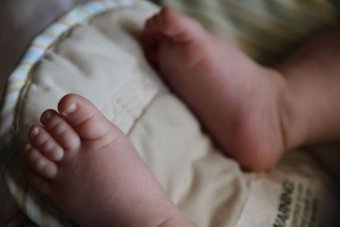Women who ignore advice against having a home birth are “selfish”, WA’s peak medical body says, after a coronial inquest found the death of two newborns could have been prevented.
A Perth coroner released her findings yesterday on the deaths of three newborn babies in Perth in 2010 and 2011.
In two of the cases, the mothers were advised against having home births because of the risk of complications.
WA coroner Sarah Linton found the deaths would most likely have been prevented if the babies were born in hospital.
Sometimes the determination and the zeal of women to deliver at home goes well beyond common sense.
AMA president Michael Gannon
The WA Australian Medical Association has urged pregnant woman to listen to their doctor’s advice if giving birth at home is deemed not safe.
President Michael Gannon said it was selfish to put a baby at risk if a home birth was deemed unsuitable.
“When women with risk factors like previous caesarean sections, twins, [and] underlying medical conditions choose to have their babies at home, they are really rolling the dice,” he said.
“They are risking their babies lives, it really is a very selfish decision.
“There is no way to make it safe under those conditions.”
Dr Gannon said obstetricians and midwives were “tearing their hair out” trying to convince women to take the safer option.
“Sometimes the determination and the zeal of women to deliver at home goes well beyond common sense,” he said.
“The reality is a lot of women stop listening when doctors give them good medical advice.
“Unfortunately in the case of home births it’s another patient, it’s their unborn baby that suffers the consequences.
“Women in other countries around the world would give anything to give birth under the safe conditions [of] Australian hospitals.”
Community must be convinced ‘hospital is safest place’
Dr Gannon said there should be more community education that hospitals are the safest place to give birth.
“We need to work very hard on those women who feel disengaged from the health service when they have had a difficult first birth,” he said.
“We need to try and reach [out] to those people and listen to their concerns.”
In the third case, which was deemed a lower-risk pregnancy, Ms Linton said the parents were encouraged by government-employed midwives to plan the birth at home, contrary to medical advice.
Ms Linton said opportunities for the midwives involved to communicate with the consultant obstetrician were repeatedly missed.
The North Metropolitan Health Service (NMHS) issued a statement, saying “while the publicly-funded Community Midwifery Program (CMP) cared for the mother and baby during the birth in one of the cases, it acknowledges that the loss of any child is a devastating time for the mother and family”.
“The service offers its sincere condolences.”
Ms Linton recommended the NMHS consider improving the method of recording a mandatory obstetric review, so all health professionals could easily access it.
She also advised that the CMP discharge form be amended to include a confirmed birth plan and the name of the obstetrician who approved it.
The Department of Health said it will implement the recommendations of the coroner that relate to the CMP service.

